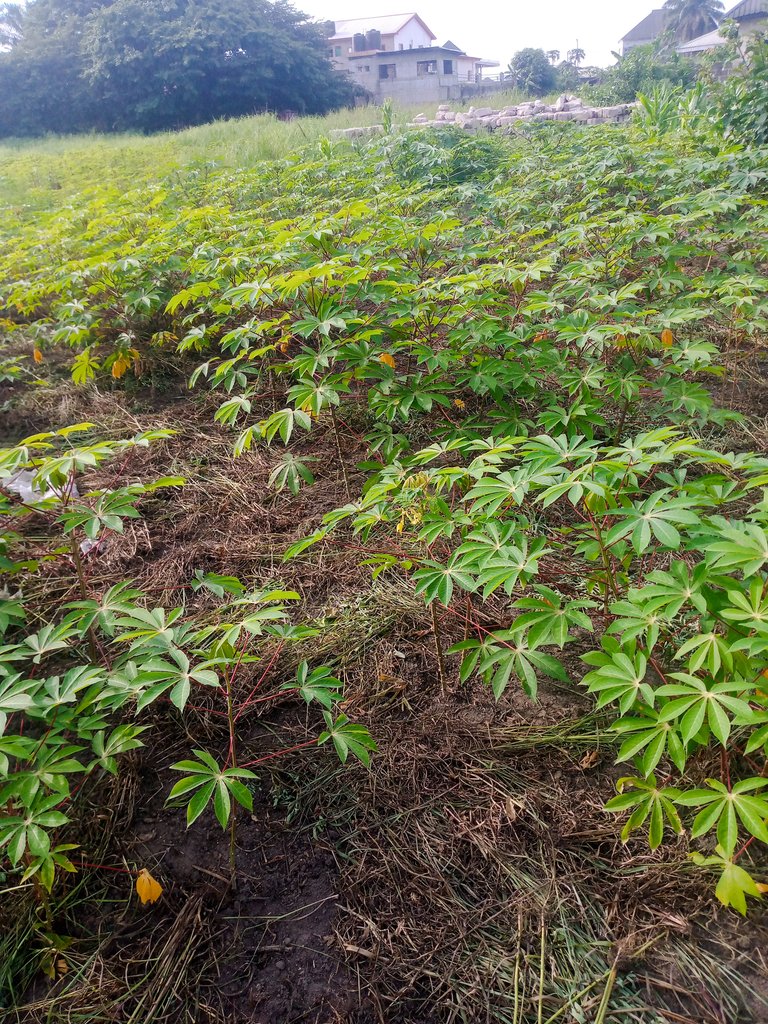Hello everyone!

Like I've said countless times, I grew up in a rural setting where farming was our main occupation—subsistence farming, though. In those days, everything was purely organic. No addition of fertiliser; in fact, a piece of land to be cultivated would have been left to fallow for 5 to 6 years to generate enough nutrients that would last throughout the farming months. Also, there was nothing like using chemicals to preserve farm produce.

Take maize, for example. We stored it in the kitchen, where there was always fire(heat/smoke) to keep it dry daily. The only challenge we had was rats eating the corn, so instead, we would use rat poison to eliminate them. Our farm products were purely organic, and people used to come from far and wide to buy them on market days. But hey, this was merely a subsistence farming method. When it comes to providing food for the nation, there was no way our small farming scheme, even though we cultivated large portions of land, could meet that demand. In fact, we mainly produced basic products like garri, melon, and yam, while major foods like beans and rice were not cultivated in our area. This is where technology has been particularly helpful, but at the same time, the quality of food has drastically reduced...technology and science give room for massive production.
Yes, to provide food that will serve a nation or a continent, subsistence farming cannot match up. Large-scale farming, where the latest scientific methods are applied, has taken over.
Now, we have the usage of different types of fertilizers and feeds that make animals grow faster than their natural timeframe. Storage chemicals, which are helpful in preservation, also reduce the quality of products and, in some cases, can be harmful to health if not handled properly.
Is this the price we have to pay for using science and technology in our food?
I have thought of possible ways to store food using traditional methods where chemicals are not involved, but that seems impossible because produce from large-scale farms cannot be handled like that of small farms. So, chemicals must definitely be used to aid preservation. This means that the effects of chemicals in storage are inevitable—we are getting what we deserve; that is the price we must pay.

In my area, the woman who sells beans to me always offers two options. She tells me that one batch is preserved with chemicals while the other is not. The one preserved without chemicals is more expensive and is not always available. That tells you how small the production of chemical-free food is.
Should I even talk about animal production? You can't compare naturally reared fish to those raised with chemically enhanced feeds—the difference is always noticeable.
Unless a way is found to reduce the usage of chemicals in animal feeds and storage, the reduction in food quality will remain a reality. That is the price we must pay.
Thanks for reading.
Photos used are mine
Technology has really changed the way food is produced! From automated farming to smart packaging, everything is getting more efficient. One area that stands out is commercial kitchen equipment—things like high-speed ovens, smart refrigerators, and automated prep stations make food production faster and safer. If you're in the food industry, upgrading your kitchen tech can be a game-changer!
Yeahh, the innovation in the kitchen is an amazing one. Women no longer need to 100% workaholic in the kitchen as it used to be in those days.
Thanks for stopping by
The population of the society requires a Large scale production to be able to provide enough for human consumption..
Yeah, the petty yam or cassava production in the back yard farm can't stand anything.
Thanks for stopping by bro
Always welcome Boss..
Earlier people who were in villages did not do it like this at all and grew vegetables purely. It took more time, profit was less but people's health was not getting damaged.